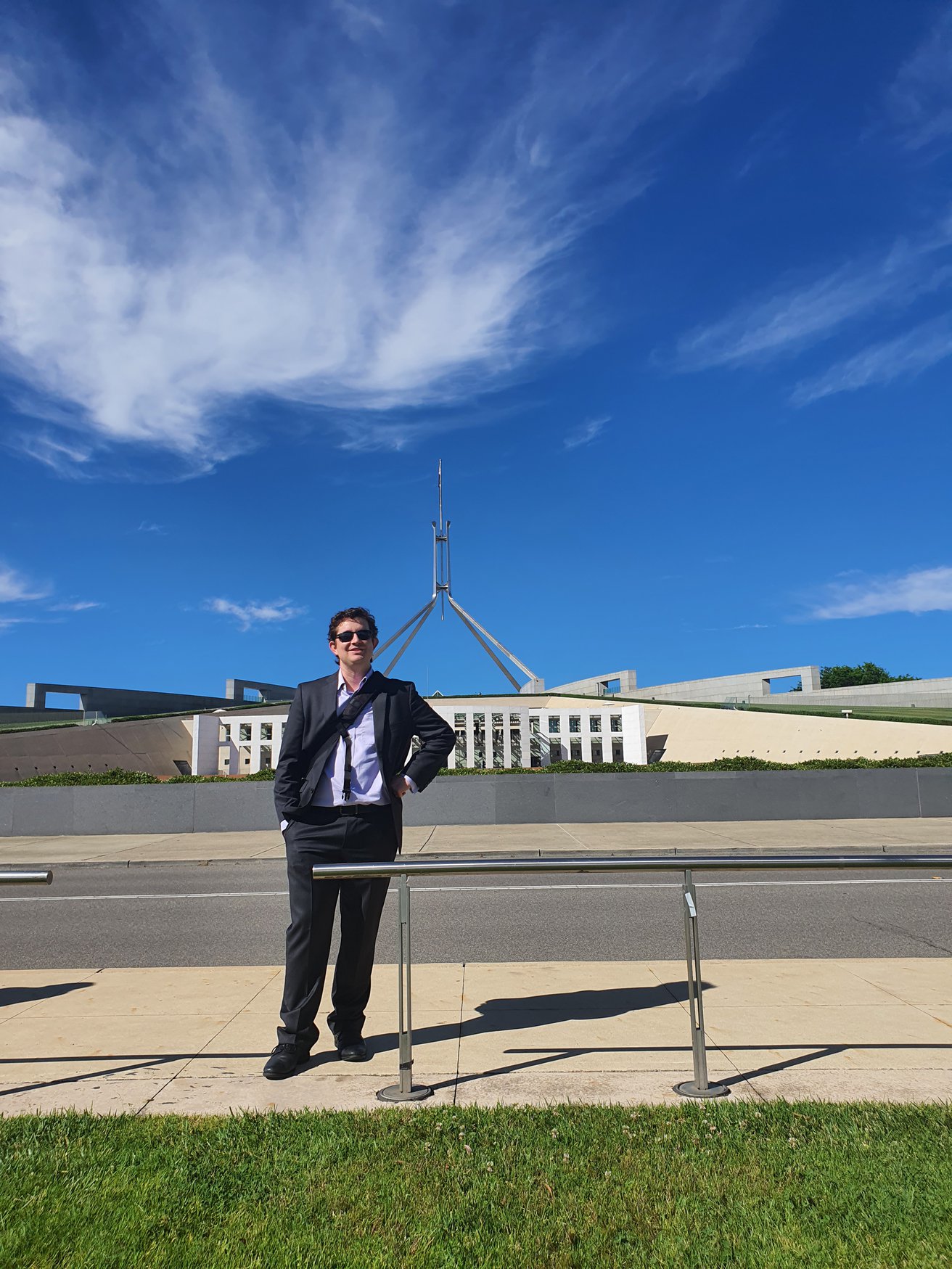


The Advocate's Journey: Shining the spotlight on physician advocacy
The highly praised mini-documentary series, The Advocate’s Journey, was released on Medflix in May 2021. This engaging series of five short episodes demystifies the advocacy process, shares experiences of successful health advocates and encourages physicians to use their position to make an impact.
Dr Robert Lethbridge, a paediatric respiratory and sleep physician at Perth Children’s Hospital, interviews well-known physicians who have taken the leap into advocacy and achieved remarkable outcomes from their work.
“Sometimes a patient's problems lie beyond their diagnosis. They’re part of a system that seems either oblivious to their problems, or even actively working against them. There are factors beyond our control that seem to be stymieing attempts to help them. That is where there is a role for broader advocacy,” says Dr Lethbridge.
Throughout the series, we find out what it means to be an advocate and the challenges they experience. It also addresses how advocates get their issues on the agenda of governments and other decision-makers, as well as the appropriate way to interact on social media.
The risks and benefits of engaging with the media during advocacy are discussed during Dr Graeme Edwards’ interview. Dr Edwards is an occupational and environmental physician who brought the accelerated silicosis epidemic to public awareness.
“We now know that nearly one in four workers exposed to dust from engineered stonework before 2018 have developed silicosis,”1 says Dr Edwards.
The silicosis story went to air on ABC’s 7.30 Program just before the Council of Australian Governments Meeting. Widespread media interest was one of the factors that resulted in the establishment of the National Dust Disease Taskforce.
“The media came to us. At that stage I had sufficient insight and understanding of how the College can support a practitioner and specifically how the College could support me. With the guidance of the media unit, we were able to progress to opportunity, knowing a respected media player was very interested in doing a story, in this case, the 7.30 Program.”
Engaging with media is one part of an advocacy strategy, which may involve many different activities. Professor Fiona Stanley, the 2003 Australian of the Year and founder of the Telethon Kids Institute, advises against physicians going to the media in the first instance. Instead, she recommends focusing on building the foundation of effective advocacy.
“Go to the bureaucrats and politicians behind closed doors. Seek a political champion, a media champion, a bureaucratic champion – we're the research champions. The most important ingredient is the consumer champions.”
Approaching your MP can be a daunting task, but as Dr Lethbridge found, our MPs are not at all intimidating and are in fact on your side. They want to know your views and ideas as a constituent, and they often value your professional expertise, knowledge and opinions.
When COVID-19 restrictions permitted, Dr Lethbridge flew to Canberra, where he interviewed Liberal MP, Dr Katie Allen, and Labor MP, Dr Mike Freelander, at Parliament House. Dr Allen shares her advice for physicians wanting to approach an MP.
“Read their background. Read their first speech because it is their roadmap of why they’re doing what they’re doing and what they want to achieve.”
Sometimes, politics can be a long game. When writing an email to MPs, Dr Freelander suggests “be simple, be succinct and understand that your individual politician certainly may not be able to change things overnight.”
Another way of getting your message out to the public is through social media. Dr Jin Russell, a developmental paediatrician at Starship Children's Hospital in Auckland is a big believer in the power of Twitter.
“I ran a campaign with friends to save a research study that we thought was really important, the ‘Growing up in New Zealand’ study, Aotearoa New Zealand’s largest study of children and families. It looked like the government was going to stop funding, so we banded together with some of the families from this research study and ran a social media and online campaign.
“Using social media is like writing lots of small letters, open letters, because they’re viewed by thousands of people. It’s extremely public and gathers a lot of attention. We had lots of media attention on our campaign, resulting in positive responses from MPs. The public nature of social media demands accountability from these public figures,” says Dr Russell.
The RACP provides avenues for passionate Fellows and trainees to have a collective impact. Dr Edwards shares his experience working with RACP and the role of the College in supporting physicians.
“There’s the infrastructure within the College to create position statements and policy. There’s the infrastructure to liaise with the stakeholders, to engage with them and bring them onboard with the policy settings we’re supporting,” he says.
Ultimately, the documentary series highlights that physicians can be great advocates due to their subject matter expertise and respected roles in society. Professor Stanley articulates this by linking expertise and trustworthiness to physicians’ credibility and influence.
“Doctors are immensely powerful when it comes to health policy and what should happen to health and wellbeing. That's been shown time and time again,” says Professor Stanley.
The Advocate’s Journey was developed as a collaboration between the College’s Professional Practice and the Policy & Advocacy teams. It is part of a broader physician advocacy online learning resource, which will be released later this year.
To hear from fellow physicians about the importance of advocacy, watch The Advocate’s Journey today. Access RACP’s extensive range of quality online education covering a breadth of professionalism and clinical topics at RACP Online Learning. If you’re an RACP member interested in policy and advocacy, please submit your interest in joining the Policy Reference Group.
[1] https://www1.health.gov.au/internet/main/publishing.nsf/Content/562CF83B7AECFC8FCA2584420002B113/$File/NDDT-Final-Report-June-2021.pdf

